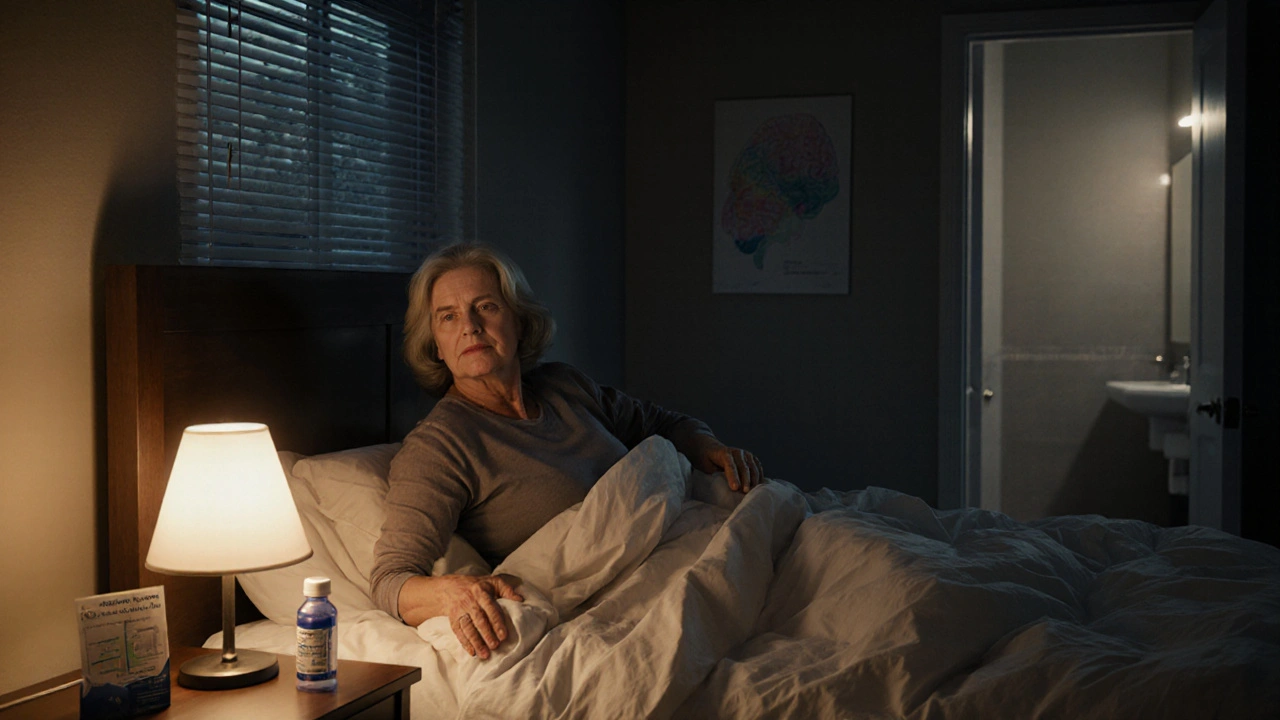Sleep Disturbances: Causes, Symptoms, and Practical Management Tips
When dealing with sleep disturbances, any condition that interrupts the normal pattern, duration, or quality of sleep. Also known as sleep problems, they affect daily energy, mood, and long‑term health. Understanding sleep disturbances starts with a clear definition, because the term covers everything from occasional sleepless nights to chronic disorders that need professional help.
Key Factors Behind Sleep Disturbances
One of the most common sub‑types is insomnia, difficulty falling asleep, staying asleep, or waking up too early. Insomnia often shows up as the first symptom when a person’s internal clock is off‑balance. Another major driver is medication side effects, adverse reactions from drugs that disturb sleep patterns. Antidepressants, anti‑seizure meds, and even blood thinners listed in our guides can make it hard to stay asleep. A third piece of the puzzle is circadian rhythm disorders, misalignments between the body’s internal clock and the external day‑night cycle. Shift work, jet lag, or exposure to screens at night all fall under this umbrella. Together these entities form a network: sleep disturbances includes insomnia, medication side effects influence sleep disturbances, and circadian rhythm disruptions lead to sleep disturbances. Recognizing which factor dominates helps you choose the right fix.
Health conditions that trigger sleep issues often appear in our other articles. For example, fever linked to autoimmune diseases can raise body temperature and break sleep cycles, as described in our piece on fever and autoimmunity. Chronic lung problems like obstructive pulmonary disease also cause night‑time breathing difficulties that fragment sleep. Even alcohol‑induced oedema creates uncomfortable swelling that keeps you awake. By connecting these medical topics with sleep disturbances, we see a clear pattern: many physical ailments act as indirect contributors to poor sleep.
Managing sleep disturbances means tackling the root cause, not just the symptom. Good sleep hygiene—dark bedroom, consistent bedtime, limited caffeine—addresses circadian rhythm problems. If a medication is the culprit, a doctor may adjust the dose, switch to a non‑sedating alternative, or suggest timed administration. Mental‑health treatments such as cognitive‑behavioral therapy for insomnia (CBT‑I) are effective for stress‑related insomnia. For chronic conditions like sleep apnea, devices that keep the airway open at night provide relief. Tracking sleep with a journal or a simple app helps you spot patterns, whether it’s a flare‑up of an autoimmune disease or a new prescription that’s keeping you up.
Below you’ll find a curated set of articles that dive deeper into the links we’ve mentioned. From how fever can worsen autoimmune disorders to safe buying guides for generic medications that sometimes cause insomnia, each post adds a piece to the puzzle. Whether you’re looking for practical tips to improve sleep hygiene, want to understand the impact of specific drugs, or need to manage an underlying health issue, the collection offers actionable insights you can apply right away.

How Head Injuries Lead to Nocturia: Causes, Diagnosis, and Management
Explore why head injuries often cause nighttime urination, how to diagnose the link, and practical steps to manage nocturia after a brain injury.
